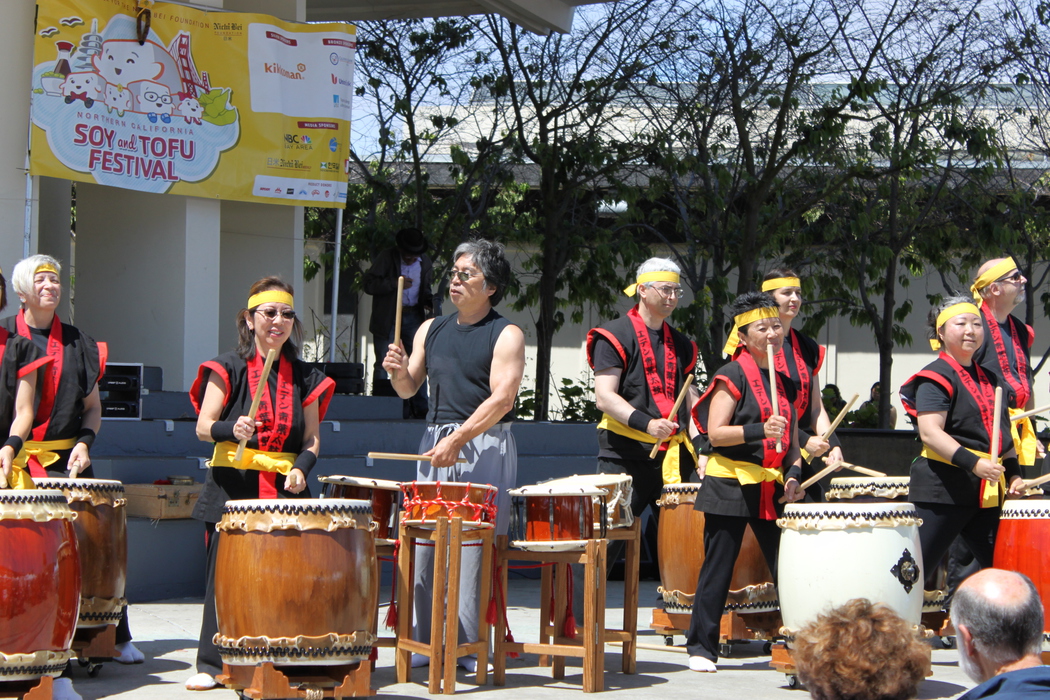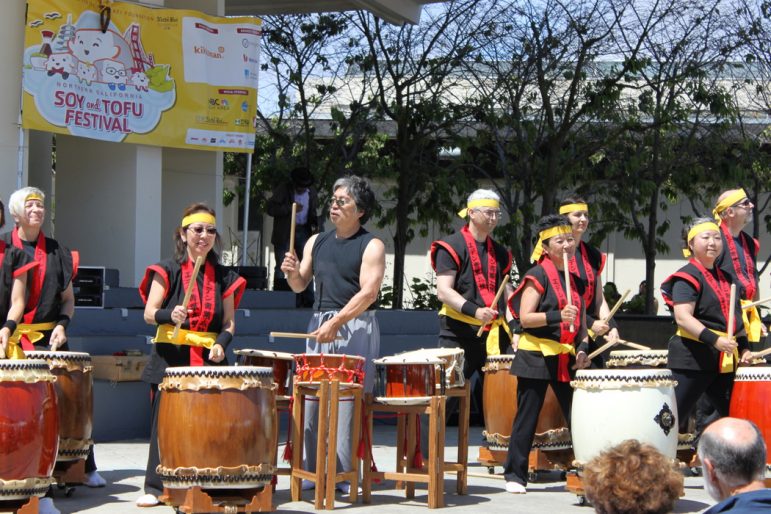
Eden Taiko performs at the 2015 San Francisco Cherry Blossom Festival.

In many people’s lives, culture plays a massive role. Not only does culture influence family life, it plays into other things as well, such as music. Here at Aragon, many students interact with cultural music, whether it’s playing an instrument, dance or something else, and for many, it has made a great impact.
Everyone’s reasons for being involved in cultural music varies and at times, those reasons change, as they did for Peruvian dancer, sophomore Jasslie Altamirano Murgia. “I started at a young age, [three], so I didn’t really chose to. There was a point of time, around six or seven, kids just want to do whatever they want, so I didn’t really want to do it. I wanted to, just to keep my parents happy, but then I just didn’t find it fun, but then I just kept on going, kept on going, and I found so much love for it and now I don’t want to quit.”
The history behind cultural music is vast and encompassing. Music comes from different purposes, origins, and methods and has evolved over time. Joshua Yoon plays Taiko, a type of Japanese drum, at Stanford. “[A hundred years ago] most people would play Taiko at Buddhist temples as entertainment, normally they wouldn’t play with other people,” says Yoon. “Things started to change at the end of World War II.” Yoon continues to relate how there were Japanese internment camps and pervading racial discrimination against the Japanese, so one of the ways they coped was to play Taiko drums. “It was their way of communicating to the country and people around them that, ‘This is my culture. This is what people back in Japan did and we want to share with you what the Japanese culture has to offer.’ Now Taiko is more of something people can do together, and [it provides] a way to bring people together, and [forms] communities that are very close-knit. I think it has more of a social aspect to it now than before.”
Miguel Govea, leader of the Latin band Los Compas, emphasizes the importance of retaining one’s culture. “Where I grew up, in the sixties, there was a strong push for assimilation [to] American culture, which is great in order to be able to work and operate functions, but it is very important to know about your family and your origins. And to think about that American culture is that if you’re coming from someplace else there’s a rich, rich core of knowledge and culture that you’re missing out on if you don’t know about it.”
Although traditional music spans massive multitude of origins and purposes, there is a common thread that it provides: an ability to connect to their culture. Bowditch eighth grader Ishani Basak plays the tabla, a South Asian drum: “One reason [I play the tabla] is to retain my culture because it reminds me of my heritage, my ancestors, and the Indian history of how it used to be played in the king’s court.”
Altamirano Murgia adds, “I want to express my culture and I want to keep me culture going through generations. Especially, like if I have kids later on, I would want them to join Peruvian dancing because it’s so nice and I’ve met so many people through it and it just keeps me closer to the family and the culture.”
Altamirano also goes on to talk about how this has helped her find commonality with new people: “When I go to Peru, it brings so much joy to me because I can go to dance classes and it’s like, ‘Oh, I already know this, so let me dance with you,’ and you’re automatically connected.”
“Especially in my case, music was always a way to connect with people,” says Govea. “I learned Spanish later on, but I’ve been able to connect with people from all types of Latin America through music and I also was able to learn the language better.”
Cultural music teaches individuals countless lessons that are unique to its traditions.
Taiko instructor and founder of Eden Aoba Taiko, Masa Fukuizumi, says, “I try to teach disciplines that play important roles in human relationships such as: respect, harmony, unity, modesty and flexibility. I believe these are core disciplines in Japanese culture and playing taiko requires these and balancing them.”
As for Yoon, the effect of the Taiko principle “beginner’s mind,” has been profound. “[Beginner’s mind] is basically a concept where you don’t want to be close-minded; you don’t wanted to be arrogant, and it’s this idea that there’s always something to learn. You can’t just rely on yourself, you have to listen to people and not look for a response, but try to process what someone is saying and think about it and see how you can compromise and change your old views.”
Cultural music allows expression to flourish, people to connect, and minds to develop. Although one may not be involved in cultural music, it’s clear that with a healthy relationship with one’s roots and past comes an appreciation for one’s present and future.




